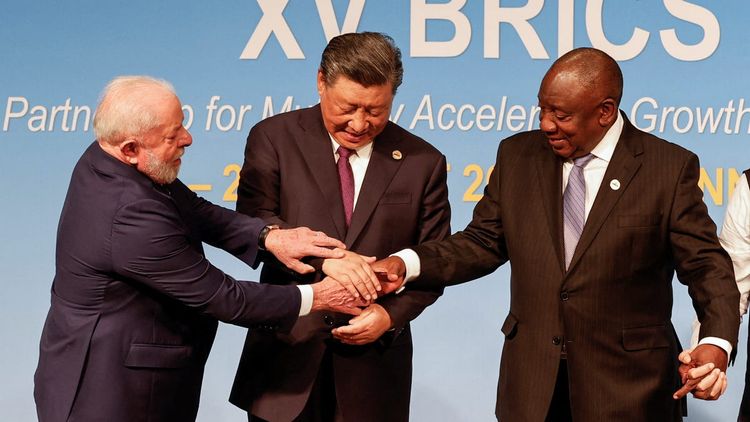Why the BRICS countries are interested in expanding their ...

The economic bloc representing the nations of Brazil, Russia, India, China, and South Africa (BRICS) announced plans to consider membership for new countries during their annual summit.
Opportunities in the energy sector and macro funds
Expansion has been a hot topic during the conference—scheduled from August 22-24 in Johannesburg—with reports of major economies like Saudi Arabia, Ethiopia, and Argentina vying for membership. All told, at least two dozen countries across a broad spectrum of the developing world have expressed interest in joining the economic bloc.
In a televised address preceding the summit, South Africa’s president Cyril Ramaphosa argued that increasing BRICS membership could work as a bulwark against a unipolar world.
“An expanded BRICS will represent a diverse group of nations which share a common desire to have a more balanced world order,” Ramaphosa said.
China and Russia, increasingly isolated, push for expansionThis mentality is nothing new for BRICS. The group has historically looked to compete with the G7 group, a rival economic bloc made up of the US and its allies, and more members equal a larger influence over the world’s financial architecture.
However, the once-booming economies of BRICS member states have slowed, increasing the urgency of expansion. China—once the economic powerhouse of the group—is navigating a major slowdown, while Russia’s economy is in free fall following wide sanctions retaliating its invasion of Ukraine.
That’s why it is not a surprise that China and Russia are pushing for the admittance of new members, while reports suggest that India—a major ally of the US with something to gain from a diminished Chinese economy—is more cautious about expansion, especially for countries in the far East.
Similarly, reports suggested that Brazilian president Luiz Inácio Lula da Silva has expressed concerns that increased BRICS participation could weaken the influence of its current members.
At the summit’s initial press conferences, both Indian president Narendra Modi and Lula did publicly endorsed starting a process to increase membership, but without any commitment to a timetable.
Why do countries want to join BRICS?The last country to join BRICS was South Africa, which became part of the bloc in 2010, four years after the organization was founded. A burgeoning economic power at the time, South Africa’s economy was significantly smaller than the other members, but with a large reserve of natural resources.
Many other BRICS candidates, like Kazakstan and Algeria, are in a similar position, with hopes to build stronger trade relationships with emerging economies.
Other potential candidates, like Saudi Arabia and Iran, are already major economies that are driven by a mix of business and geopolitics. The countries (which recently normalized diplomatic relations) are both interested in expanding political and financial ties with non-western countries in a strategy to counter US influence in the region.
Finally, some economically established countries are interested in BRICS while playing both sides. Egypt and Indonesia are both examples of upper-tier economies looking to continue building ties with BRICS members, while still maintaining a close relationship with the US.
And then there’s Argentina—a much-discussed addition to BRICS—which recently raised interest rates to 118% to help curb rampant inflation. During the summit, Lula floated the idea of using the New Development Bank—a bank funded by BRICS members—to ease Argentina’s debt burden, amid the the country’s lack of foreign currency reserves.
Related stories:???? Ecuador voted to ban oil drilling at a major site in the Amazon
???????? China’s reputation as a leading economic power is fast eroding
????Brazil and Argentina are laying the groundwork for a Latin American currency to rival the US dollar









































